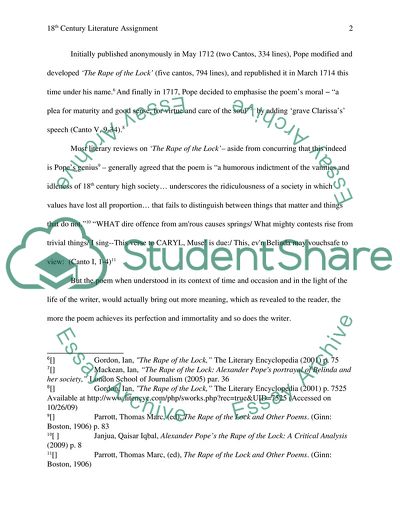Cite this document
(18th Century Literature: The Rape of the Lock Written by Alexander Assignment, n.d.)
18th Century Literature: The Rape of the Lock Written by Alexander Assignment. Retrieved from https://studentshare.org/literature/1728243-18th-century-literature-assignment
18th Century Literature: The Rape of the Lock Written by Alexander Assignment. Retrieved from https://studentshare.org/literature/1728243-18th-century-literature-assignment
(18th Century Literature: The Rape of the Lock Written by Alexander Assignment)
18th Century Literature: The Rape of the Lock Written by Alexander Assignment. https://studentshare.org/literature/1728243-18th-century-literature-assignment.
18th Century Literature: The Rape of the Lock Written by Alexander Assignment. https://studentshare.org/literature/1728243-18th-century-literature-assignment.
“18th Century Literature: The Rape of the Lock Written by Alexander Assignment”, n.d. https://studentshare.org/literature/1728243-18th-century-literature-assignment.


